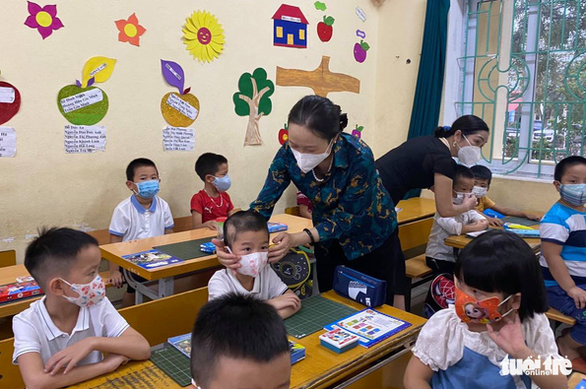For some, COVID-19 gives you time to read and think. And I’ve been thinking about what’s next after COVID-19 – if there is an ‘after’…
Most of us realize life is never going to be quite the same again while recovery from the pandemic and the collateral economic damage will take much longer than we have hoped for.
The coronavirus is going to change our world in a way that we have barely begun to comprehend. As a quote neatly puts it, “We are not at the end of the COVID-19 crisis, and maybe not even at the end of the beginning.” So, what’s next?
The most obvious and hardest answer is rebuild, adapt, and transform. The proof lies in the massive educational investments that Japan, South Korea, Singapore, and Taiwan made after World War Two. But Vietnam is still lagging behind.
It’s very likely that businesses around the world will look to automation to reduce the risks of COVID-19 transmissions in large manufacturing sites. The loss of revenue and jobs in Vietnam’s industries is evidence of the financial chaos that’s holding up recovery. Forget the travel and hospitality sectors, as it will take years to re-build travel confidence while there’s no real internationally-agreed method of getting people around.
Now, part of that automation process will mean many kinds of job will disappear in the next decade and the existing workforce will need retraining and reskilling. Now here’s the problem: COVID-19 has already strained household budgets, especially as many parents invest a large part of their income in education yet the nation needs workers with more than manual skills. And the major problem is not enough students complete high school. Family and financial pressures force many to leave early or simply can’t afford to continue as their belts are tightened.
The problem is so bad that even the authorities in Ho Chi Minh City are considering waiving tuition fees for K-12 classes during the coronavirus crisis. Basically, primary education is free; however, schools still charge fees for books, cleaners, stationery, and much more. The issue gets worse in secondary education where tuition is charged – a step away from the more universal idea that all children should have free access to education until at least grade 9 or 10 (usually up to the age of 16).
Tuition-free high school has been floated around as an innovation for many years now although it is yet to be formalized in law or educational policy. Back in 2017, the education ministry proposed free tuition for all public elementary and secondary schools. Elementary and secondary schools (grades 1-9) would be considered primary education, while high school (grades 10-12) would provide a choice between academic and vocational training.
Nguyen Dinh Huong, former vice-chairman of the National Assembly’s Committee for Culture, Education, Youth and Children pointed out back then, “It would equip the children with basic knowledge and skills, from that, they can continue higher education (if they can afford it) or choose vocational training to have a better future,” the Viet Nam News quoted him as saying in 2018.
The point of all this is not just to educate more students but to provide secondary education that introduces them to a wider understanding of the world they are going to live and work in. The boom in e-business, online shopping, remote work, and more is going to require new business and organizational skills and particularly the understanding that the work you do today may not be around in the future. The notion of re-inventing yourself, marketing, shifting into new work environments – stuff that’s not so well understood in Vietnam – will have to become how we educate students.
Too fanciful? A bit impossible? Not really! The cost incurred by the government has already been estimated as a small increase in a big education budget. Also, there might not be much choice except to adapt and change – the countries around Vietnam will all be competing for economic advantages and bringing industry and technologies into their economies as a matter of survival and revival. Supply chain issues are going to shift manufacturing locations and offering ‘cheapish’ but educated staff is an attractive package.
Whichever works out, getting more kids into and completing high school has the potential to dramatically improve life for hundreds of thousands and make a shift in thinking that’s more adaptable to the unpredictable future we all face.
I hope freedom from fees will encourage more parents to keep their children at school and transform their lives; as well as the future of Vietnam.




















































